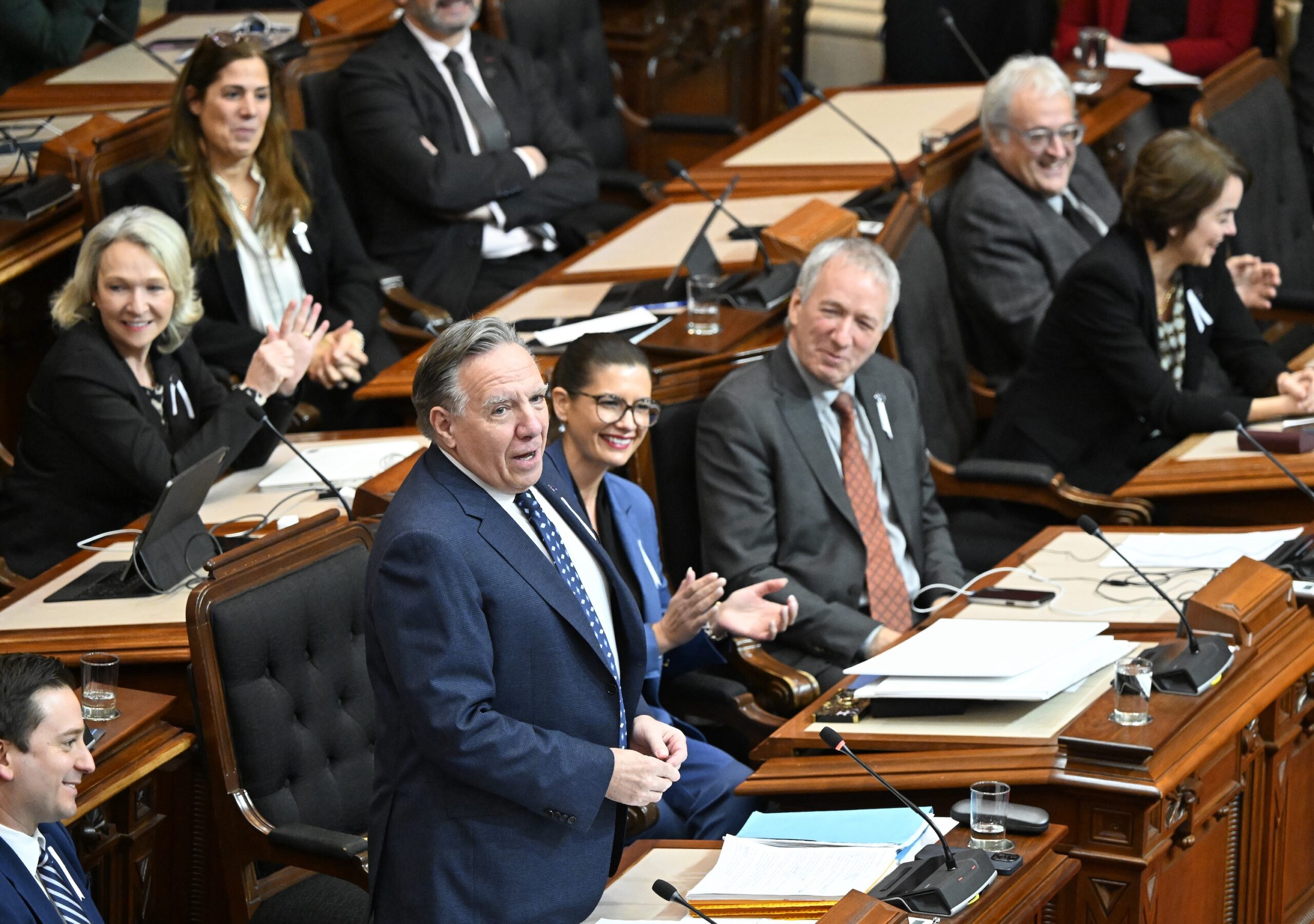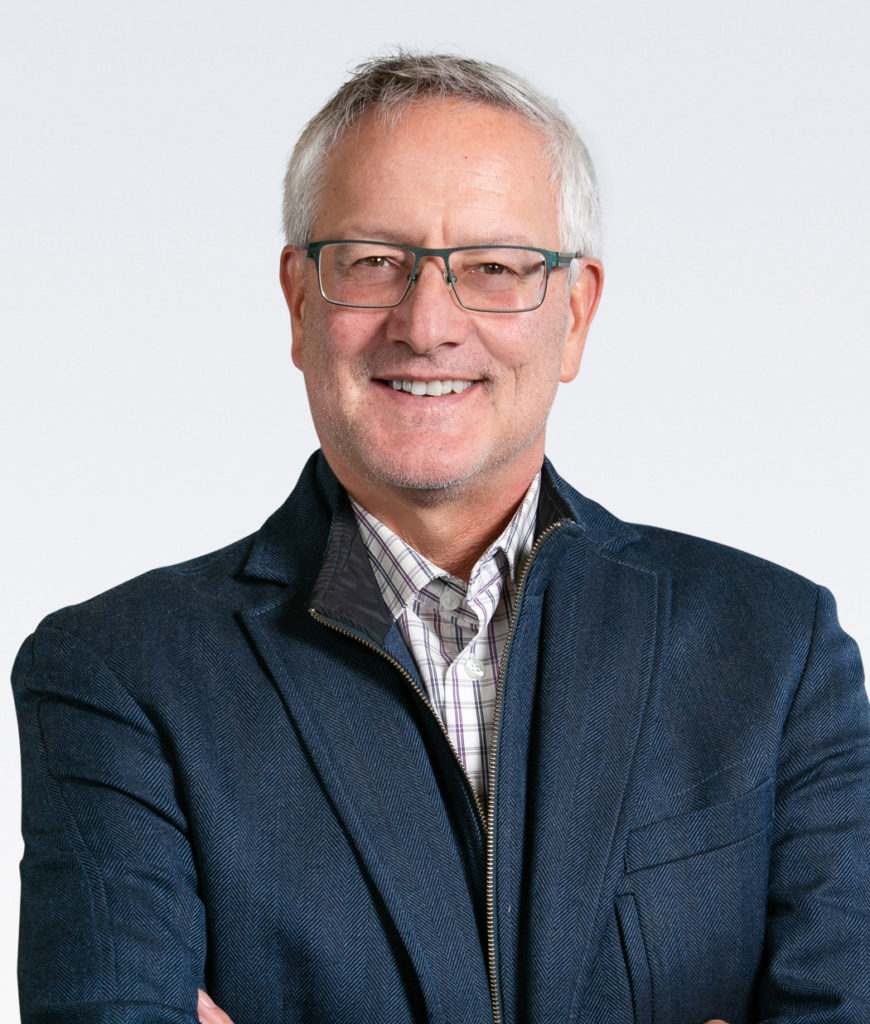On Friday, December 6, the fall sitting of Québec’s National Assembly officially ended after a week of intensive sittings.
The session began on uncertain footing with the departure of “super-minister” Pierre Fitzgibbon, marking a significant change at the cabinet table. As the session progressed, the CAQ faced mounting pressure and controversy, including challenges stemming from Northvolt’s bankruptcy.
Perilous polls for the Premier, popularity on the rise for the PQ
The Parti Québécois remains ahead in the polls with 35% of the projected popular vote, while the CAQ has dropped three points. A new L’actualité poll also revealed that 53% of Québecers believe Premier Legault should step down as leader before the next election. With a 33% approval rate, Legault’s popularity could be even lower than that of his federal counterpart, Prime Minister Trudeau. The Premier, however, has assured that he will remain leader through the 2026 elections.

Striking the balance between immigration caps and labour market needs
A recalibration at the national and provincial level has contributed to an overall tightening of immigration policies – something the CAQ government has long pushed for. Over the course of the session, Québec’s new Minister of Immigration, Jean-François Roberge, spearheaded several initiatives aimed at restricting permanent and non-permanent newcomers. The government announced in late October that there will be a freeze on Québec Selection Certificates, restricting access under Québec’s Regular Skilled Worker Program and the Québec Experience Program. In the final days of December’s intensive sitting period, the government adopted a bill aimed at restricting the entry of international students to Québec’s higher education institutions.
Minister Roberge also announced a pause to the government’s “Journées Québec”, a program aimed at recruiting skilled labour for key sectors, such as aerospace, batteries and mechanics, nursing, and education. Roberge noted that the government is re-evaluating its strategy in order to align with new temporary and permanent resident targets. Guidelines for a new plan are expected to be announced in June 2025.
Québec’s immigration strategy has historically favoured recruitment from French-speaking regions in order to satisfy domestic labour needs, but these recent restrictions will add pressure to an already tense labour market. Industry representatives have referred to the restrictions as potentially devastating.
Speaking at the Net-Zero Edge conference in Ottawa in mid-October, Hydro Québec’s CEO Michael Sabia, stated that Québec needs roughly 35,000 workers per year to satisfy labour needs. For peak years, between now and 2035, the number could be as high as 55,000. Sabia emphasized the need for recruiting talent from abroad, particularly to ensure Québec has an adequate supply of skilled labour to support the ongoing energy transition. Striking the right balance for foreign recruitment will be increasingly important, as the rate of growth of Québec’s domestic population is on the decline. In the 2024 fall economic update, it was noted that natural increase did not contribute to population growth for the first time since these statistics were first published.
Québec’s healthcare reform faces stormy weather
The rollout of Québec’s healthcare system reform has attracted intense scrutiny from healthcare workers, political opponents, and onlookers. During the fall session, attention was focused on the government’s labour negotiations with nurses, mandates requiring new doctors to practice in the public sector for the first 5 years of their career, and the launch of Santé Québec.
The centralization of Québec’s healthcare institutions under Santé Québec was slated for December 1st, 2024. However, the launch of the agency was overshadowed by the revelation that “non-negotiable” cuts of roughly $1.5 billion must take place. Minister Dubé admitted that services will be impacted by the cuts, and that the timing of the integration is not “ideal”. One week following the launch of Santé Québec, Minister Dubé announced that he will not be seeking re-election in 2026.
Dubé’s political career has extended over nearly 12 years, during which he has served as the Minister of Health and Social Services, Chair of the Treasury Board, Acting Minister for Seniors, and Minister Responsible for Government Administration, most notably.
Legislation on ice: Québec’s energy reform paralyzed by trade and policy tensions
Volatility continued to surround the energy file following the departure of Fitzgibbon, with new challenges emerging regularly. The issue has attracted significant media attention in Québec, as the population is preoccupied with the issue of not having enough clean energy and the impact this could have on economic prosperity and future generations. Following decades of reliable, clean electricity, this is a change that happened over a very short period. Premier François Legault’s closing ‘Christmas wish’ summed up this uncertainty, as he joked about needing a battery to start 2025 off with a roar, and hoping “Santa Claus doesn’t go bankrupt”.
One of the province’s most expensive projects, the clean battery factory led by Northvolt, has faced more challenges this session. After announcing plans to scale back its global operations, Northvolt filed for bankruptcy protection in the U.S. However, the company insists that its Québec plant will continue as planned, with its Canadian subsidiary remaining unaffected by the bankruptcy process. Despite this reassurance, the situation raises concerns about the $240 million already invested by the province and the future of the $7 billion project. The battery industry has experienced a dip globally in recent months, so while the issue is not exclusive to Québec, the CAQ government’s major investments in the sector have put them in a position of high risk. In Canada alone, two billion-dollar projects led by Umicore and E-one Moli have been placed on pause or outright cancelled.
The election of Donald Trump on November 5th has added another layer of uncertainty to Québec’s energy transition. Québec’s Bill 69 was notably absent from the legislative agenda during the final week of work at the National Assembly, which Minister Fréchette revealed was a deliberate response to the upcoming regime change south of the border. She stated that if tariffs are imposed on Québec, it could alter the province’s competitiveness when it comes to electricity exports. Given the re-evaluation of electricity pricing poised to take place under Bill 69, there are some elements of the proposed legislation that could be modified.
There are still several steps remaining in the legislative process before Bill 69 becomes law. MNAs must completed a detailed study at committee, and review the resulting report, before considering it for adoption.
PLQ race heats up: who will take the reins?
The race for the leadership of the Liberal Party of Québec is set to begin on January 13th. In November, Pablo Rodriguez announced he would resign as a federal Member of Parliament once the race commenced, addressing criticism from other candidates. Despite concerns about his ties to the Liberal Party of Canada, Rodriguez has garnered support from Linda Caron, MLA for La Pinière; Michelle Setlakwe, MLA for Mont-Royal–Outremont; Désirée McGraw, MLA for Notre-Dame-de-Grâce; and former Minister Luc Fortin.
Rodriguez remains, as of November 2024, the frontrunner among leadership contenders, with 28% from Liberal voters in Québec. Denis Coderre follows with 13% among Liberal voters, trailed by potential candidates Marc Bélanger, Charles Milliard, and Frédéric Beauchemin, who garner 4%, 4%, and 1% of support respectively, according to a Léger poll.
Meanwhile, Denis Coderre, is facing controversy over allegations of owing more than $266,000 in unpaid taxes to the Canada Revenue Agency and $134,000 to Revenu Québec, adding further turbulence to his campaign. The former Montreal mayor, who suffered a stroke in 2023, has stated that the matter will soon be resolved and dismissed attempts to use his personal tax issues. “People will understand that I am capable of solving problems,” he asserted in a September 3 message.
The new leader is set to be elected on June 19th, 2025.
On the horizon
Three key issues are set to make headlines in 2025. First, Premier François Legault ended the fall session by hinting at the possibility of banning prayers in public places, raising questions about secularism and the limits of religious expression in public spaces. This could tie into broader discussions around Québec’s values, as the premier also mentioned that he wants minister of Justice Simon Jolin-Barrette to work on a provincial constitution that would reflect values such as gender equality, secularism and immigrant integration. Finally, the threat of tariffs under a potential Trump administration poses a serious risk to Québec’s economy, particularly in sectors like electricity exports to New England and New York. If these tariffs are imposed, Québec may need to adapt to new trade challenges.
Upcoming key dates
- Winter break: December 7th to January 27th, 2025
- 2025 Québec Liberal Party leadership election: June 9 to 14, 2025
- Next election (fixed date): October 5th, 2026


